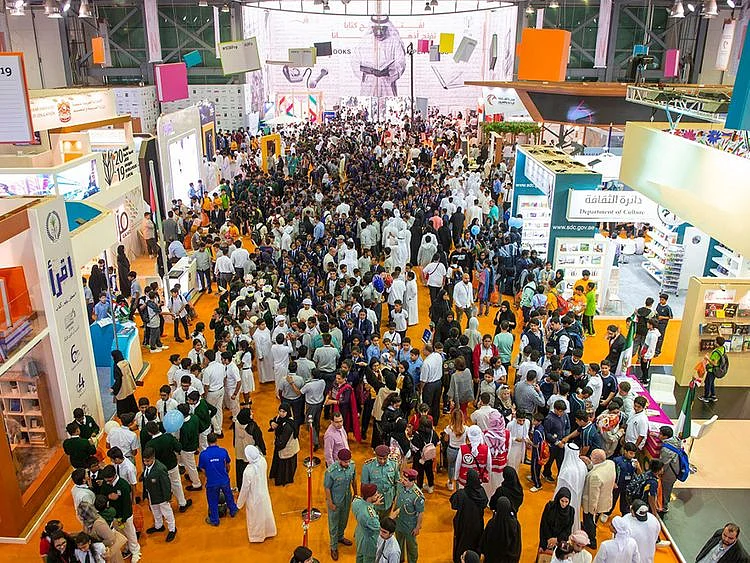AI and audiobooks shift reading habits at Sharjah International Book Fair 2025
Visitors explore smart kiosks, live AI translation and next-gen reading formats

The 44th Sharjah International Book Fair 2025 brings technology and tradition into sharp focus, with artificial intelligence and audiobooks altering the experience and safeguarding of reading for new and established audiences.
Inside Expo Centre Sharjah, the 2025 Sharjah International Book Fair assembles worlds apart—echoes of vintage print culture mingling with the hum of machine-driven services. Artificial intelligence (AI), audiobooks, and automated systems stand not as mere novelties but as driving forces reshaping the entire scope of reading. Enthusiasts of all ages encounter technologies that not only transform storytelling and commerce, but also the stewardship and accessibility of heritage. Organised by the Sharjah Book Authority and running through 16 November, the fair intersperses early 20th-century artefacts with forward-leaning platforms for engagement.
AI has become a functional tool for both writers and exhibitors, extending their reach and efficiency. Shirley Jump, known for her status as a New York Times bestselling author and as a featured speaker, remarked, "I use AI to create handouts for my courses, design social media graphics, or summarise transcripts," adding that the technology "saves time—it’s like having an assistant. But I never use it for fiction. That’s where the joy is. AI can’t put in the emotion, the soul." She further stated, "Everyone’s rushing to publish. AI can help speed things up, sure—but good writing still takes time, care, and heart."
Greater inclusivity marks another frontier. Jump’s presentation at SIBF utilised a live, AI-enabled interpretation platform, providing immediate translation into six languages. Tabish Zaidi, CEO of Jeem & Co—the system’s developer—said, "Our goal is to make knowledge borderless." He continued, "AI interpretation removes linguistic barriers and allows every visitor, regardless of language, to share the same experience, live, human, and inclusive."
Routine tasks on the exhibition floor now reflect a digital-first approach. At Menassah Distribution Company’s pop-up, patrons process their own purchases via automated kiosks, freeing staff to devote extra attention elsewhere. Even booksellers with a strong historical focus are embracing change. Ehab Elrifai, representing New Azbakya, has begun digitising a trove of historic Arab magazines: "I’ve started using AI to catalogue and digitise thousands of magazines," he said. "I’m planning an online archive that will preserve Arab print culture and make it searchable for students, researchers, and anyone interested in Arab culture."
Young readers move fluidly between formats, integrating AI-powered applications and audiobooks into their routines. Fatima Al Shehhi, a literature student, described her pragmatic use of new media: "It doesn’t replace reading for sure but it does help me stay connected when life gets busy." Asmi Pattnaik, aged thirteen, outlined features of certain AI reading services: "Some AI reading platforms actually let you adjust the tone and pacing. It’s strange at first, but kind of amazing—like reading and watching at the same time." At publisher displays, interest in AI-centric and audio works is unmistakable. Hanes Medinaceli of Little Puffin Publishing observed, "All six of our AI-themed children’s books sold out within days," adding, "Even audiobooks like Diary of a Wimpy Kid are now among our bestsellers. Families are embracing the format—it makes reading a shared experience again."
Yet, neither algorithm nor archive eclipses the enduring appeal of the fair—its simultaneous embrace of deep-rooted tradition and emergent technology. Shirley Jump summarised the moment: "Technology is rewriting the rules," she observed, underscoring, "Whether you’re reading a 1912 magazine or a story co-written with AI—it’s still about connection. That part will never change. And that’s what makes this fair so special."
Network Links
GN StoreDownload our app
© Al Nisr Publishing LLC 2026. All rights reserved.